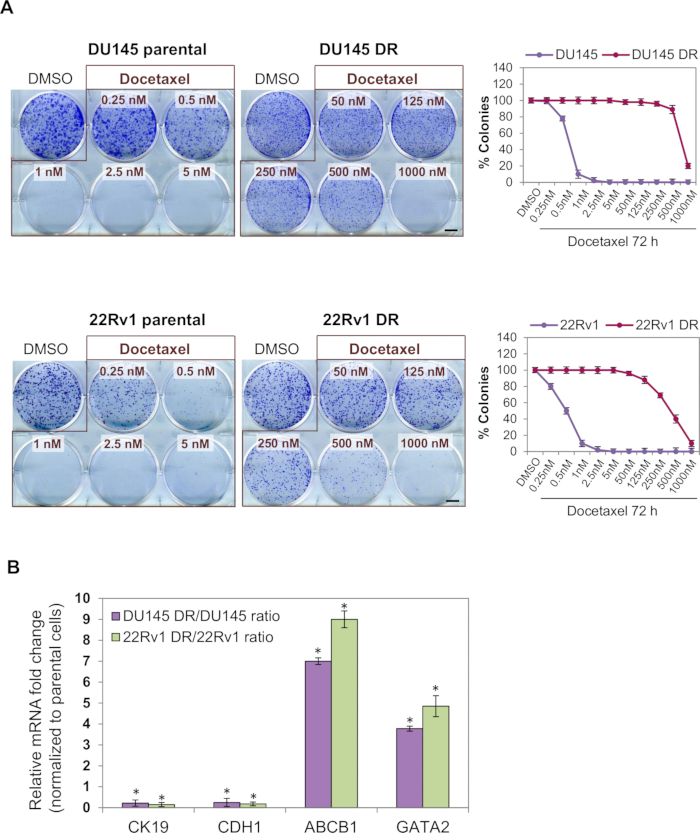A subscription to JoVE is required to view this content. Sign in or start your free trial.
Functional Chemoresistance Characterization: A Method to Evaluate Drug Resistance in Cancer Cells Using Clonogenic Assay
In This Article
Overview
This video describes a method for evaluating chemotherapeutic drug resistance in prostate cancer cells using colony formation assay. This assay can be used as a functional tool to identify novel molecular and cellular mechanisms of chemoresistance in cancer cells.
Protocol
1. Functional Characterization of Acquired Docetaxel Resistance by Colony Formation Assay
NOTE: In this protocol, chemoresistance has been evaluated using colony formation assays. Alternative methods used to evaluate cell viability (i.e., MTS assays) can be used based on investigators' preferences.
- Plate 2,000 cells (DU145 or 22Rv1, both parental and Docetaxel-resistant) per well in 6-well plates, using 2 mL of media per well.
- After 24 h, add increasing concentrations of Docetaxel (parental cells: 0.25, 0.5, 1, 2.5 and 5 nM; DR cells: 50, 125, 250, 500 and 1,0....
Representative Results

Figure 1: Functional and phenotypic characterization of the Docetaxel-resistant cell models. (A) Representative colony formation assays of parental and Docetaxel-resistant cells treated with the indicated Docetaxel concentrations for 72 h. Percentage of colonies for every treatment concentration is represented in the included graph. The experiments are triplicates and data r.......
This article has been published
Video Coming Soon
Source: Mohr, L. et al. Generation of Prostate Cancer Cell Models of Resistance to the Anti-mitotic Agent Docetaxel. J. Vis. Exp. (2017)
ABOUT JoVE
Copyright © 2025 MyJoVE Corporation. All rights reserved